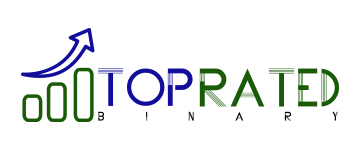Trading in the forex market, which is the world’s largest financial market and which trades trillions of dollars a day, means you got to take on risks all the time. After all, being deregulated market has its price. Forex market risks are inherent to it, caused by light regulations (actually, the market is decentralized and largely unregulated), high usage of leverage, volatile currency values, and other impactful market forces.
Let’s talk more about these risks.
Currency Value Fluctuations
There are countless reasons why currency values change so quickly and frequently. To name one, you have external political and economic events, like the much talked-about Brexit in Britain.
Most of the time, external factors such as the above and internal factors cause the fluctuations in the currency value. And this nature makes it difficult for many traders to actually chill out when trading forex. Although the fluctuations aren’t really all that bad if your goal is to make solid gains quickly, one’s inability to accurately predict the effects of such events can cause huge risks on one’s investment.
Sometimes it’s the market that spurs fluctuations. Here’s a quick example: when the dollar sees stronger days (its value going up), American companies typically buy more foreign products denominated in another currency, say the euro. In order for these companies to purchase such products, they need to exchange dollars into euros. As you may suggest, this drives up the demand for the euro, while the dollar consequently shrinks in value.
Types of Investors and Levels of Risk
There are different large and deep-pocketed market participants in the forex market. Some of them are huge and known financial institutions, while others are corporations that do international business.
Retail investors and banks trade to make profits and corporations typically trade in the usual course of buying and selling products in different countries.
Moreover, currency trading also means using high leverage. This is necessary so that even a small amount of cash investment and some margin may let traders play with a large amount of value. Depending on the amount of leverage you use, you can control an amount of value way higher than the cash investment you actually use. To make it plain, this means both your losses and profits are magnified.
Successful Trading
Successful forex trading means trading conservatively while using suitable risk management strategies. It’s good advice to start to trading using a practice trading platform and a demo account. You can start making hypothetical trades without putting your investment capital at risk.
If you’re going to look at how recognized successful forex traders do their thing, you’ll see that they distribute their trading funds over many trades. Doing so lets then diversify their risks, giving them better chances of winning against the market.
Also, these successful traders do not use leverage without considering the risks. They know that if they leverage their trades more aggressively, they put their trades into higher chances of BIGGER losses. And that’s what you must try to avoid.
Minimize Your Risks
Some of most advisable risk-minimization habits that have stood the test of time are:
- Initially trading with a practice account
- Diversifying risk with several trades in different markets instead of just a single trade
- Using stop-loss orders to put a cap on potential losses
- Using leverage sparingly

